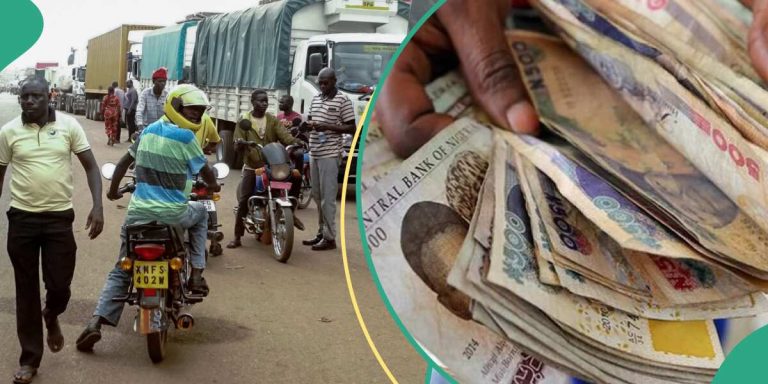
In the wake of the recent depreciation of the Nigerian currency (naira), the local currency of the West African market region is facing additional challenges as trans-border traders have begun to refuse the currency.
Investigations conducted along the Seme border revealed that trans-border traders are increasingly hesitant to accept the naira. Instead, they favour either the CFA franc or the local currencies of non-francophone nations.

Photo credit – GPJ, Financial Times
Source: UGC
When naira was prominent trading currency
Previously, the naira held sway as the primary medium of exchange among traders across borders due to the substantial trade volumes between Nigeria and neighbouring countries in the sub-region.
Traders had the liberty to utilize the naira across various countries in West Africa as it enjoyed convertibility in the informal payment networks of various countries.
British pound loses to naira as Nigerian currency continues to gain in April, Nigerians react
At that time, the naira boasted a stronger value compared to the CFA franc. However, those days have passed, as the naira is now met with rejection in these nations.
According to Vanguard research, the naira’s convertibility status began to erode in February, culminating in outright rejection by March 2024.
Nigerian traders interviewed by Vanguard expressed dismay over the escalating risk of holding naira, given its consistent depreciation since last year, with the most significant decline recorded in the last few months.
Naira depreciation against CFA franc
According to official reports, the naira experienced significant fluctuations against the CFA franc throughout 2023.
Starting above N1/1.5CFA in the first quarter, it plummeted to N1/0.9CFA in the second quarter and N1/0.8CFA in the third.
Following relative stability in the fourth quarter, it began in 2024 at N1/0.66067CFA in January.
However, a second wave of depreciation hit in February, causing the exchange rate to drop drastically to N1/0.38308CFA before reaching a new low of N1/0.37595CFA last week.
Naira performs better in black market than official window as It gets new ranking in Africa
Naira no longer prominent currency at borders
Traders are now taking precautions against further depreciation, although a slight improvement has recently occurred.
Despite this, the naira still falls short of its former strength in the subregion, adversely impacting the cost of imported goods into Nigeria from West African economies.
Consequently, business activities have slowed on both sides of the Nigeria-Benin Republic border towns.
During visits to border markets between Benin and Nigeria, it was observed that many money changers or Bureau De Change no longer prominently display the Nigerian currency as they did in the previous year.
Transporters and motorcycle taxi riders, known as Okada in Nigeria, have begun refusing payments in naira across borders.
Their rationale is that converting naira to CFA upon return would result in a loss of earnings due to unfavourable exchange rates. As a result, they consider holding CFA to be a safer option.
Naira rebounds, ranks among best performing African currencies